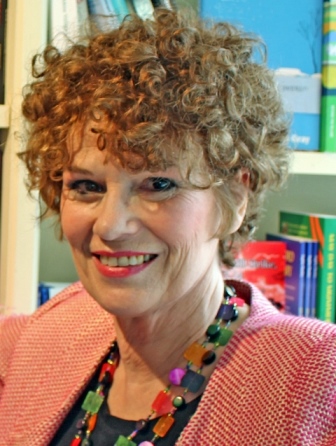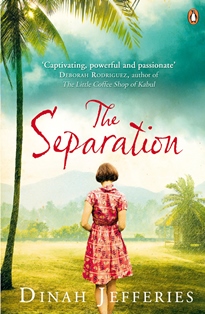Dinah Jefferies, author of The Separation, explains how she came to writing later in life, and how having a wider pool of experience to draw from helped inspire her work.

My life has been varied. I’ve been a mum and now a grandparent, worked in Theatre, in Education and broadcasting, been a painter, lived in a commune with a rock band, and many years ago was au pair to a countess in Italy. Now, in my sixties, I have become a writer: not something I ever expected to be. I’ve always loved reading and had scribbled bits and pieces over the years, but I hadn’t considered writing a novel until I was living in a tiny village at the top of a forested mountain in Northern Andalucía. With too much time on my hands, I missed my family, and I also missed my own language.
When the economic crisis of 2008 happened, my husband and I lost nearly everything in the crash. We were in shock, but it gave me the kick I needed to begin the novel I’d been thinking about. At the very least writing would help take my mind off our losses. My first novel turned out to be a learning experience, but it was because I did learn, and kept going, that my second book, The Separation, attracted my agent. Now, after my family, writing is the most important thing in my life, and I feel privileged to have discovered the thing I love doing more than anything so late on. Of course I wish I’d discovered it sooner, but truly I feel lucky to have found it at all.
The inspiration for The Separation was sparked by my mother’s old photograph albums. We lived in Malaya in the 1950s, during the Malayan Emergency, when the British administration was fighting a ‘war on terror’ against the Communist insurgents operating from the depths of the jungles. Mum’s photos painted a picture of the cocktail hour, fancy-dress parties, and holidays on remote palm fringed islands, but there was another side to the story. To ensure his safety, my father had to go out every day with two armed police. We lived with the scent of lemongrass in gardens filled with flowers, yet our lives were overshadowed by the sound of gunfire.
One thing about writing later in life is that you have a great deal more experience to play with. In part The Separation is an exploration of love and loss, which meant that I had no choice but to draw on the experience of losing my own son to write the story. It was a difficult time of my life to revisit, but it was something I felt I had to do. The novel is set in 1950s Malaya and England, and centres on a mother’s search for her missing daughters. Lydia, the mother, returns home to find her house empty and her daughters gone, with no idea that they’ve been taken by their father to live in England. For Lydia’s daughter, Emma, I wanted to write about the contrast between a magical childhood that nevertheless, took place at a time of terror, and my own life experiences provided some of that detail.

When I found my agent, it was one of the best days of my life. I hadn’t thought past finding an agent, hadn’t considered publishers, or any of the ensuing stages. Then, when my book sold to Penguin and four other countries within days of my agent submitting it, I could hardly believe it. Now my second book, The Tea Planter’s Wife, will be published too, and I’m absolutely thrilled.
I’ve discovered the road to publishing is paved with highs and lows. When I sent out the first book I had to develop a thick skin to cope with rejections. It forced me to find out what I really loved to write about and so I found my own voice, as opposed to sounding like others. The Separation came from my heart and soul as well as my brain, and that’s what gives it life. It’s also what anyone wanting to write has to do, though it can leave you vulnerable and exposed. It doesn’t matter. The thing is to keep going, keep writing day after day, even when it’s terrible, and even when you think you can’t. I think it was Jodi Picoult who said something along the lines of this: you can always edit terrible writing, you can’t edit a blank page.
So my advice to any would be writer is that it’s never too late. I think it’s important to consider the early stages as an apprenticeship. For me the learning never stops and that’s one of the reasons being a writer is the best job in the world. I only hope I have enough time to write all the books I want to.
Dinah Jefferies was born in Malaya in 1948 and moved to England at the age of nine. She has worked in education, once lived in a 'rock 'n roll' commune and, more recently, been an exhibiting artist. She spends her days writing, with time off to make tiaras and dinosaurs with her grandchildren.
Find out more about Dinah on her website and follow her on Twitter here.
Comments